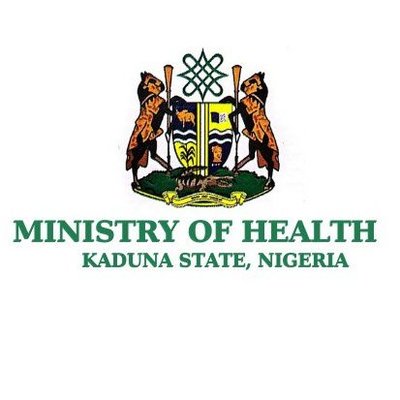Health
Ex-health minister urges stakeholders to set up early cancer diagnosis framework
Former Minister of Health, Prof. Isaac Adewole, has urged government and other stakeholders to set up framework to encourage early diagnosis and access to affordable treatment and management of cancer.
He made the call at the official unveiling of the National Institute for Cancer Research and Treatment (NICRAT) and the Technical Working Group and Oncology Stakeholders Meeting in Abuja on Tuesday.
The News Agency of Nigeria (NAN) reports that NICRAT, which was established under the NICRAT Act of 2017 is charged with the responsibility of providing national leadership in cancer research, treatment and control, among other things.
Adewole, therefore, said early diagnosis, affordable treatment and management of the disease is essential because late presentation is one of the leading cause of cancer deaths in the country.
He added that “data has also shown that the cost of cancer treatment and management is not in sync with the income of most Nigerians suffering from the disease.”
The former minister, however, said that having such a framework in place would prevent late-stage diagnosis and help those suffering from the scourge to get proper treatment.
He said “it is good that the country’s healthcare system is tilting toward Universal Health Coverage (UHC) with the establishment of the Basic Health Care Provision Fund (BHCPF) and health insurance schemes under the National Health Insurance Authority (NHIA) at both the national and state levels.
“There is need to integrate cancer care into all UHC programmes since poor Nigerians cannot pay out of pocket.
“This framework must ensure Nigerians, irrespective of location, get unfettered access to healthcare services for diagnosis, treatment and management of cancer, while government expands the Cancer Health Fund and set aside resources from the insurance pool funding to tackle their challenges.”
According to Adewole, cancer has become a global health issue of concern, given the associated increased mortality and disability caused by it.
He added that early diagnosis of the disease is important for treatment options, but countries like Nigeria lack access to early diagnosis, which often result to higher mortality rate.
The ex-minister quoted the Catalan Institute of Oncology (ICO) and the International Agency for Research on Cancer (IARC) 2023 factsheet as indicating that the ccountry has a population of 60.9 million women from age 15 who are at risk of developing cervical cancer.
He said “current estimate indicates that 12,075 women are diagnosed with cervical cancer and 7,368 die from the disease every year.
“Majority of these cancer cases are first diagnosed in hospitals in advanced stage when definitive cure is no longer feasible.”
He also said that the World Health Organisation (WHO) estimates the top five commonest types of cancers in Nigeria as breast cancer, cervical cancer, prostate cancer, non-Hodgkin lymphoma and liver cancer.
‘“These cancer types and the other less common ones kill about 80,000 Nigerians every year,” he added.
He, however, said that the strategic direction to prevent cancer in Nigeria is to ensure political will and commitment, evolve policies and programmes and generate local evidence toward tackling the ailment.
Adewole, who urged the newly established institute to mobilise investment in cancer research and care and avoid taking on the role of teaching hospitals, implored NICRAT to understand key information on common cancers and review existing data on hospital and population studies.
“Avoid dependence on only government resources or engaging only on routine cancer care services,” he advised.
The Director-General of NIRCAT, Prof. Usman Aliyu, said that the strategic focus of the institute is to regulate and enhance access to cancer care in Nigeria, establish and maintain a cancer registry.
He added that it is also to spearhead research and development in cancer prevention and control and ensure public education and awareness creation.
Aliyu said the meeting brought together diverse group of experts, healthcare professionals, researchers, policymakers, pharmaceutical companies, patient advocates and many others who had dedicated their lives to combating cancer.
“Your presence here reflects your unwavering commitment to making a difference in the lives of those affected by this disease.
“Today’s agenda provides a unique opportunity to network, establish new partnerships and strengthen existing relationships. The power of collaboration cannot be overstated,” the director-general said.
Health
FG bans use of foreign syringes, needles in tertiary hospitals

The Federal Government has mandated all Chief Medical Directors (CMDs) and Medical Directors (MDs) of Federal Tertiary Hospitals to procure needles and syringes solely from NAFDAC-approved local manufacturers.
The new directive is contained in a circular addressed to all CMDs and MDs signed by the Minister of State for Health, Dr Tunji Alausa, on Friday.
The minister said that the directive was aimed at boosting domestic production and shielding the country’s manufacturing sector from the influx of foreign goods.
The circular also mandated NAFDAC to stop issuing licences for the importation of foreign manufactured needles and syringes.
Alausa said the health sector had dentified local pharmaceutical industries that produce needles and syringes that were in serious trouble because of the practice.
He also said that out of the nine local pharmaceutical companies that produced needles and syringes eight years ago, six have folded up due to the dumping of largely substandard goods into the market.
“Mr President has directed that this must stop. We all agreed to take the necessary steps to immediately remedy this sad situation.
“Pursuant to this, NAFDAC has been mandated to stop issuing licences for the importation of foreign manufactured needles and syringes.
“It is also to de-list companies involved in the importation of these products going forward,” he said.
Alausa said ”all our tertiary hospitals are hereby directed to procure needles and syringes for your hospital needs from only the NAFDAC-approved local manufacturers listed below are listed either directly or through any of their vendors.
“EL-Salmat Pharmaceuticals Company Ltd Block, Brand Name: Salmaject, HMA Medical Ltd., with brand Name: Deleject and Afrimedical Manufacturing and Supplies Ltd.”
He also listed some of the distributors of the listed companies in some states of the Federation for easy access to assist in making the procurement process easier in the various institutions.
Health
KDSG trains 180 Red Cross volunteers on Lassa Fever intervention


The Kaduna State Ministry of Health has begun a three-day training for 180 Red Cross volunteers on Lassa fever intervention.
The training, which is facilitated by the ministry and funded by the Red Cross, is meant to equip the volunteers selected from 5 LGAs in the state with necessary skills.
The volunteers were drawn from Zaria, Igabi, Kaduna South, Kaduna North and Chikun Divisions.
The State Epidemiologist, Dr Jeremiah Dikwu, said the volunteers were trained with the knowledge needed to massively intervene during cases of Lassa fever in the state.
He said that the intervention would include Risk Communication and Active Case Search, Psychological First Aid, Rodent Control and Hygiene Promotion for the next 3 months.
Dikwu said the training started with 30 volunteers on surveillance and would end with the training of 150 volunteers on Risk Communication and Community Engagement .
According to him, Lassa fever is a viral hemorrhagic fever transmitted by rats.
He added that Lassa fever has been known since the 1950s, but the virus was not identified until 1969, when two missionary nurses died from it in the town of Lassa in Nigeria.
Dikwu added that Lassa fever was caused by a single stranded RNA virus and disseminated systemic primary viral infection.
“The main feature of fatal illness is impaired or delayed cellular immunity leading to fulminant viraemia,” he said
The epidemiologist said that Lassa fever presented symptoms and signs indistinguishable from those of febrile illnesses such as malaria and other viral hemorrhagic fevers such as Ebola.
“It is difficult to diagnose clinically but should be suspected in patients with fever (e”38°C) not responding adequately to antimalarial and antibiotic drugs.
“The most useful clinical predictors of Lassa fever are fever, pharyngitis, retrosternal pain, and proteinuria for diagnosis; and fever, sore throat, and vomiting for outcome,” Dikwu said.
He said that Ribavirin and general support were needed.
“Ribavirin is almost twice as effective when given intravenously as when taken orally, and if given within six days of the start of illness it may reduce deaths by 90 percent.
“Dehydration, oedema, hypotension, and poor renal function are common; fluid replacement or the use of blood transfusion requires careful monitoring,” he said.
Dikwu said the volunteers would be carrying out Risk communication and Community engagement, Active Case Search, Psychological First Aid, Rodent Control and Hygiene Promotion
Health
Assembly passes Kano Pre-Marital Health Screening Bill


Kano State House of Assembly has passed a bill for a law to compel intending couples to undergo HIV, hepatitis and sickle cell anaemia screening before marriage.
The passage followed deliberations in the Committee of the Whole House during plenary session,
presided over by the Speaker, Ismail Falgore on Monday in Kano.
After deliberations, the lawmakers approved the 3rd reading of the bill, read by the Deputy Clerk, Alhaji Nasiru Magaji.
Shortly after passage of the bill, the Majority Leader of the house, Lawan Hussein (NNPP-Dala), stated that “any person
intending to marry shall first submit self for medical examinations.”
He said the bill was considered and passed after the 3rd reading, following various legislative processes.
The leader further said that the bill was passed because the state had been battling with different health issues, including
HIV because people go into marriages without medical screening.
He said that the bill, if signed into law, would save many lives and curb the spread of life-threatening diseases.
“The bill will safeguard the health of citizens by institutionalising pre-marital testing to check the spread of diseases
like hepatitis, HIV and sickle cell anaemia,” he added.
-
capital market2 years ago
Rt.briscoe, FBNH, Others halts negative performance of stock market
-
Finance3 months ago
Court orders Sen. Victor Umeh to repay N136m bank debt to AMCON
-



 Abuja Update2 months ago
Abuja Update2 months agoUNDP, FG partnership needed to achieve inclusion, equity- Minister
-
Abuja Update1 month ago
Banks drive stock market performance with N147bn gain
-



 Business2 weeks ago
Business2 weeks agoTingo Group unveils Tingo Electric, Tingo Cola drink at Lagos launch
-



 Health2 weeks ago
Health2 weeks agoCapacity training will reduce migration of health workers- NPHCDA
-
News4 months ago
Oil thieves sponsoring malicious media campaign against Navy – Spokesman
-



 Infotech1 month ago
Infotech1 month agoWorld Backup Day: NITDA urges Nigerians to ensure backup of data




